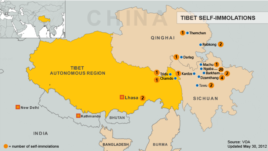Thu May 31, 2012 4:32pm EDT
* China's Commerce Minister Chen says to "exercise restraint"
* EU companies currently vulnerable to retaliation
* EU trade ministers discuss new ways to protect against dumping
By Robin Emmott and Sebastian Moffett
BRUSSELS, May 31 (Reuters) - China sought on Thursday to defuse a deepening trade conflict over accusations that it subsidises hi-tech firms exporting to Europe, as EU trade ministers met to discuss a new tactic against Chinese companies seen as trading unfairly.
Chinese Commerce Minister Chen Deming, on a visit to Brussels, said Beijing would seek to "exercise restraint in trade remedy measures", saying he wanted to see more European hi-tech exports to China.
EU Trade Commissioner Karel De Gucht, who diplomats say is considering action against China's top telecoms gear makers Huawei and ZTE Corp, said he wanted to agree "conciliatory practices" but added that China and Europe still needed to address their differences.
"It is very important that China and the EU address the problem of advanced technologies and how we handle this, and it is not limited to telecoms," De Gucht told a news conference, flanked by Chen.
"There is a problem and either we resolve it together or sooner or later it will end up in trade defence instruments," De Gucht said, referring to measures to counter subsidies and imports sold at artificially low prices.
"It will be very important to agree conciliatory practices," he said.
The EU executive thinks Huawei and ZTE receive illegal state subsidies to undercut rivals in Europe - an accusation the two companies deny.
Chen declined to comment on the case, but said he was ready to "work together with Europe and advance cooperation".
The EU has stepped up its fight against what it sees as unfair trade practices, challenging Chinese subsidies to makers of glossy paper and looking into complaints of cheap credit to Chinese firms.
In the case of Huawei and ZTE, the accusation is that their low prices hurt European equipment suppliers such as Alcatel-Lucent and Nokia-Siemens Networks.
The United States has also taken action against China, imposing punitive import duties on a number of Chinese products - including solar panels and steel products - that it believes are unfairly priced or subsidised.
GOING "EX OFFICIO"
EU trade ministers met De Gucht earlier on Thursday to sound out support for possible use of a new tactic by the EU executive against Chinese companies accused of unfair trading.
Many European companies would like protection from Chinese imports sold onto the EU market at what they consider artificially low prices. But they fear that, if they start their own industry complaints, they will be vulnerable to retaliation from the Chinese government, which could hamper their business in an increasingly important market.
De Gucht said that the Commission might in future launch cases on its own initiative, so that no foreign government could blame a European company for launching a case.
"I am considering the use of 'ex officio', which means the Commission launches trade defence cases by itself," he told a news conference after the trade ministers' meeting, without specifically relating the measure to China.
Though the Commission has the authority to launch its own investigation, diplomats and officials say political support from member states would give the move more legitimacy at a time of delicate relations with China.
"A political mandate would mean a great deal," said one EU official who declined to be named.
But Chen's visit highlighted the sensitive nature of the lucrative relationship.
At a time when European economies are stagnating, damaged by the continent's public debt crisis, exports are one of the few sources of growth.
EU trade with China is booming and bilateral commerce is expected to reach a record high of 500 billion euros ($620 billion) this year. China is the EU's second biggest trading partner after the United States. The bloc is China's biggest.
De Gucht has said the aim of the initiative was to get round companies' fear of retaliation in countries, such as China, that practice "state capitalism" - close government control of privately-owned business.
"I have a responsibility and I have the duty towards European businesses to defend their interests in the light of unfair trade practices," he said.
But a confrontational relationship with China might hurt the long-term prospects of European companies in a promising future market, while defence against Chinese companies in Europe might not boost European businesses much.
"The problems that European companies are facing are not problems of the European market," said Fredrik Erixon, director of the European Centre for International Political Economy, a Brussels-based think-tank. "The problems facing European firms are predominantly inside China."
- Link this
- Share this
- Digg this
- Email
- Reprints









